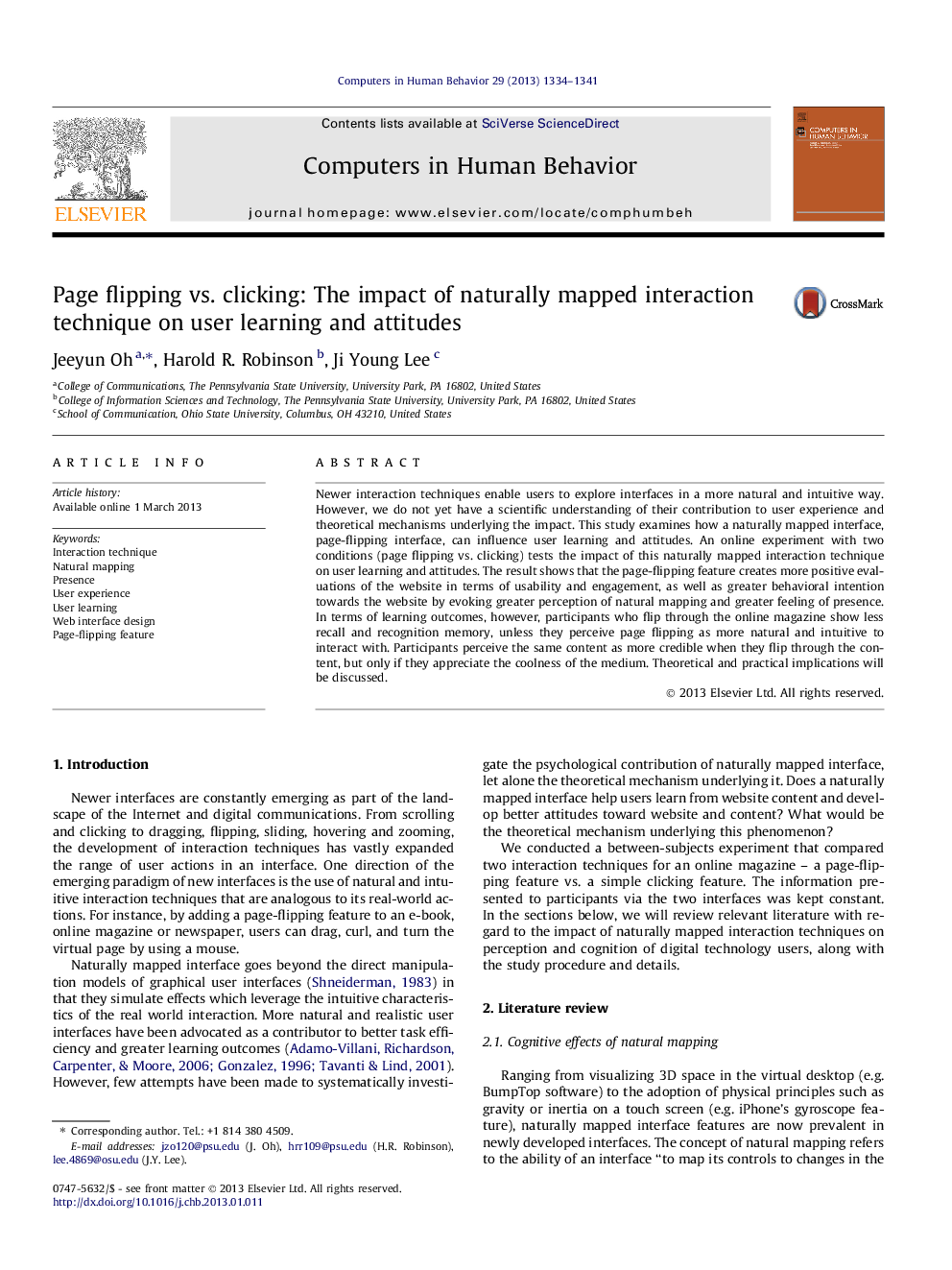| Article ID | Journal | Published Year | Pages | File Type |
|---|---|---|---|---|
| 351030 | Computers in Human Behavior | 2013 | 8 Pages |
Newer interaction techniques enable users to explore interfaces in a more natural and intuitive way. However, we do not yet have a scientific understanding of their contribution to user experience and theoretical mechanisms underlying the impact. This study examines how a naturally mapped interface, page-flipping interface, can influence user learning and attitudes. An online experiment with two conditions (page flipping vs. clicking) tests the impact of this naturally mapped interaction technique on user learning and attitudes. The result shows that the page-flipping feature creates more positive evaluations of the website in terms of usability and engagement, as well as greater behavioral intention towards the website by evoking greater perception of natural mapping and greater feeling of presence. In terms of learning outcomes, however, participants who flip through the online magazine show less recall and recognition memory, unless they perceive page flipping as more natural and intuitive to interact with. Participants perceive the same content as more credible when they flip through the content, but only if they appreciate the coolness of the medium. Theoretical and practical implications will be discussed.
► Page-flipping distracts participants from learning the content. ► Page-flipping enhances recall memory when it is perceived as natural interaction. ► Page-flipping induces greater feeling of presence, leading to positive attitudes. ► Page-flipping creates greater behavioral intention toward the site and the content. ► Coolness heuristic can make the content of page-flipping condition more credible.
